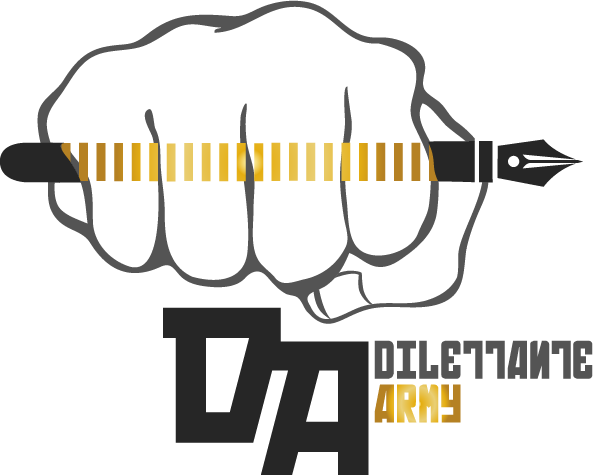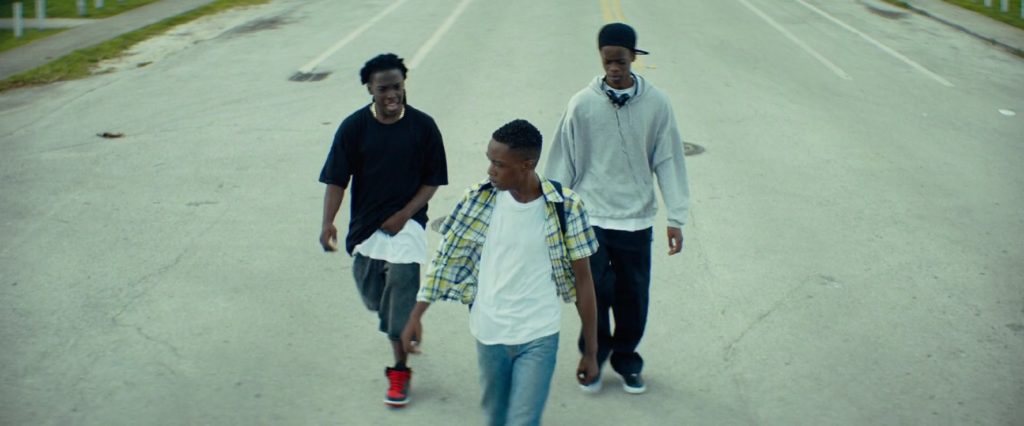“Who Is You?”: The Posthumanism of Moonlight
The first words spoken by the main character in Moonlight (2016), after a lengthy period of silence, are “my name is Chiron.” But this is quickly followed by a clarification: “people call me Little.” Implicit in the two statements is a question: who or what determines who we are? Or, to quote a line that echoes from the start to the end of the film: “Who is you?”
“I’m going to call you Chiron,” declares the adult Teresa in response, encouraging the young boy she’s just met to free himself from the symbolic power embedded in Chiron’s socially derived nickname. But the film itself, as it proceeds, make such a move difficult for the viewer. Chiron finds no liberation typical of the narrative of the liberal individual self. For this reason, Moonlight offers a compelling case for posthumanist literary analysis.
Posthumanism can refer to a range of theories and methodologies, but for our purposes we’ll take its meaning to be a response to and a critique of liberal humanism. This variety of posthumanism, that which is rooted in anti-humanist philosophy and is often called critical posthumanism, can itself be understood as comprising a diverse and bewildering number of sub-disciplines including animal studies and cyborg theory. Realist dramas like Moonlight are usually not the study of posthumanists; instead they might examine Interview with the Vampire or Blade Runner in search of the interfaces between human animals, non-human animals, and machines.
Yet all manner of critical posthumanisms and antihumanisms arguably have in common a questioning of Cartesian dualism, a problematizing of the well-worn phrase, “I think therefore I am,” that sits at the core of liberal humanism. For its adherents, the declaration of the autonomous self isn’t only a means to recognize that which is allegedly “natural,” but rather the basis of the “natural rights” that form the foundation of liberal society. In liberal humanist stories, invoking the declarative “I” is central to the protagonist’s success and the plot’s resolution, whereas institutions and organizations are generally figured as obstacles for such an individual. A declaration of identity is necessarily a declaration of individual manhood, a claim to metaphysical power abstracted from social context and rooted in a self that is understood to be, in the words of one scholar, “unified, knowing, and autonomous.”[1] Chiron is none of these three.
* * *
In the first act of Moonlight, soon after Chiron speaks, he has a conversation with Teresa’s boyfriend, Juan. Played by Mahershala Ali, Juan has taken Chiron under his care, aware that Chiron’s mother, a drug addict, is unable to be a parent that Chiron can confide in. Chiron and Juan are once again talking about names. Juan is telling Chiron about growing up in Cuba, and references a time when a woman told him that she would call him “Blue,” for the reason that black boys’ skin appears blue in the moonlight. Chiron asks if that means he should call Juan by the name “Blue.” Juan responds with a laugh, telling Chiron, “You gotta decide for yourself who you gonna be.”
Juan has rejected the idea of being named. That is, he rejects the idea that his identity is formed by others. At this moment, he appears to be the model of the Enlightenment self. Juan thinks, therefore he is; his willfulness is the embodiment of the liberal humanist ethos.
And yet the promise of individual will falls short. We are quickly shown that instead of being the hero of the story, Juan, a drug dealer, is complicit, entangled in the web of social relations that also connect Chiron and his mother. While Juan is ostensibly saving Chiron, offering him a role model, he is at the same time necessitating the existence of such a role by feeding Chiron’s mother’s addiction. When Juan finds her at his corner one night smoking crack, she calls him out for his complicity, and in the film’s next scene, Chiron does too, asking Juan if he sells drugs and if his mother uses them. Juan is broken up at having to answer to little Chiron. Notably, Moonlight offers Juan no chance at redemption. That is the last time we see Juan on screen; we learn soon later only that he is now dead.
* * *
New currents in critical posthumanism use the prevalence of modern technology, such as smart phones, the internet, and prostheses, to pose questions about where the human begins and ends. But we can look to older posthumanisms (which weren’t always named as such) to speak about technology more broadly, as a category that encompasses more than iPhones and cyberspace. Michel Foucault proposed specifically that we think about four interlocking and overlapping technologies: “technologies of production,” “technologies of sign systems,” “technologies of power,” and “technologies of the self.”[2]
In the second act of Moonlight, a teenage Chiron navigates a school and home life that is embedded in these technologies. Technologies of production—Foucault’s rare homage to Marx—include the distribution and flow of capital which keep Chiron’s family and community poor. These technologies shape the drug markets in which his mother is a consumer as well. Technologies of sign systems, the languages that shapes conduct and identity, are made intelligible through the namings of Chiron, but also through other names, for example, “faggot” and “nigger.” Technologies of power are visible in the film’s edifices and institutions: the public housing in which Chiron lives, the public school system, and (as alluded to in the film’s third act) the correctional system that he will enter. And technologies of the self are represented by the ways that Chiron is governed by his own ideas about what is normal: he apologizes for his homosexuality to his friend Kevin after Kevin gets Chiron off, and later refuses to tell the school principal which students had attacked him at school. “You don’t even know!” he cries, as the film mutes the principal’s voice and blurs the depth field in which she stands to suggest Chiron’s alienation. The first three technologies that Foucault identifies could very well be found in humanism-derived critiques, as obstacles to be overcome by the autonomous individual. But it’s their imbrication with the technology of the self that helps us to see that man as pre-discursive, immutable, or universal is a fallacy.
Before Kevin is pressured by another student into initiating the assault on Chiron, he too takes part in the process of naming. Kevin tells Chiron that he’s going to call him “Black” and never explains why. In a sense, this is Kevin doing just what those who called Chiron “Little” were doing: exercising power. But this is a naming of affection. Moonlight, like posthumanism, moves beyond standard debates about agency versus subjectivity. That Chiron’s name is always socially determined doesn’t mean that he is defeated, a failure in our normative liberal humanist terms because he is unable to assert his pre-social self and realize a kind of liberal autonomy. Rather, posthumanism starts from the assumption that there is no such thing, no pre-social self, no “I” that is not preceded by language and power, as Judith Butler might say. Juan and Teresa weren’t right; to an extent you do not get to decide who you are going to be. But this is not a realization to be mourned.
Central to critical posthumanism, according to Pramod Nayar, is the concept of “embodiment,” an explicit rejection of the dualism of the mind and the body that is at the core of liberal humanism’s celebration of free will. In Discipline and Punish, Foucault tells us that the “soul is the prison of the body,” suggesting that subjectivity is first an ontological condition.[3] But posthumanist thinkers refine this concept by presenting embodiment as a site of self-making and social relations. According to Nayar, identity isn’t separate from the material world, nor something to be transcended. It is neither the precondition to society, as humanism has it, nor is it simply the product of discursive technologies of domination and discipline. Instead, human life is necessarily a matter of “becoming-with” other forms of life.[4]
What makes Moonlight unique is not its insistence that social circumstances circumscribe one’s opportunities; plenty of films have done this. It’s that Moonlight is decidedly not a social tragedy, and yet it is neither an affirmation of the possibilities of free will and liberal individualism. It finds both the reality of life and the promise of it in “becoming-with.” And it takes identity seriously, rejecting both the universal archetypical man of liberal humanism as well as the superficial politics of representation and diversity that serve allegedly “post-racial” liberal projects.
* * *
One marker of humanist literature is the “life story,” narrative fiction that follows an individual through the stages of their life. Such narratives have historically worked to reify a notion of the self that is unitary, and to privilege immutable traits and characteristics over behaviors and conditions. Even though Moonlight takes as its form the traditional liberal life story, it fractures the convention by presenting viewers with disparate visual incarnations of Chiron’s subject self. In Moonlight’s three acts, Chiron is played by three different actors with very little resemblance to one another. He is literally transformed as he grows from child, to teenager, and finally to adult.
Which brings us to Moonlight’s final conversation, a return to the question of identity. In the third act, Chiron has reunited with Kevin, the only boy he’s ever had a physical relationship with, and also the boy that assaulted him, setting him on a path to prison and to drug dealing. As an adult, Chiron has added considerable muscular bulk to his frame and he now wears gold fronts on his teeth. His experience is marked on his body. No longer the skinny teenager Kevin remembers, he asks of Chiron, “Who is you?”
Chiron shrugs the question off, but after some pressing, he responds that after moving to Atlanta he “built himself from the ground up” to be “hard.” Chiron is suggesting that somehow, he remade himself. Kevin isn’t buying it however. Their perspectives are positional, which is to say their notions of what is Chiron’s authentic self conflict because of their relativity of experience. But Kevin is no more unitary or autonomous than Chiron. “Wasn’t never really myself,” he tells Chiron of growing up and having a child with a woman from whom he has since separated.
If Chiron was a different person in the third act from the second—that is, if our identity, behavior, and actions are socially conditioned and contextual—why then could the two men reform their relationship? The fact that Chiron is now “hard” ultimately serves as barely a distraction for Kevin and Chiron’s reconciliation and reunion. To be fair, posthumanism does not necessitate the wholesale negation of humanism. But we can answer this question in a couple of ways. First, by noting that the intent to remake oneself—whether that means one’s artifice or one’s “soul”—is always contingent on social forces. And personal memory, we might say, works as a technology of the self, a countervailing force to the desire to start over.
And second, Kevin and Chiron’s shared experiences form the basis of their relationship. It might be highlighting the most obvious details of Moonlight to point out that Kevin and Chiron are both black and gay. And that they both grew up poor in Miami’s Liberty City. But to see these materialities as socially situated and self-making is to see how “becoming-with” works within political and social realities. As the writer Angelica Jade Bastién argued recently, to read Moonlight as a “universal” film is to discount the socio-historical conditions in which lives play out. I would argue Bastién’s essay is thus also a rejection of liberal humanism, and a call for acknowledging embodiment. Moonlight, using an analysis of embodiment, allows us a kind of interpretive filmic roadmap for weaving together the threads of historical materialism and cultural identity.
In criticizing the emphasis on agency in the humanist tradition, Cary Wolfe identifies the “necessity of an ethics based not on ability, activity, agency, and empowerment but on a compassion that is rooted in our vulnerability and passivity.”[5] Similarly, Judith Butler writes of the “fundamental dependency” of life that becomes obscured by discourses of sovereignty and autonomy.[6] It is at the core of antihumanist critiques that we acknowledge the “anonymous others” that shape our identities and realities. But we would also do well to acknowledge another of Butler’s points, that precarity is a “politically induced condition.” Precarity is experienced by different groups of people differently, for reasons that are intentionally designed.[7]
Another success from 2016, the film Hidden Figures, offers a contrasting approach to politics and identity, one rooted in the liberal humanist tradition. The story of three black women who overcome adversity in the 1960s by contributing their skills as mathematicians to NASA, Hidden Figures poses individual will and achievement as the solution to adversity and racial discrimination. The film is explicitly about the agency, empowerment, and ability of its characters. As Wolfe suggests, the project of liberalism has been to expand pluralism “but without in the least destabilizing or throwing into radical question the schema of the human who undertakes such pluralization.”[8] According to Hidden Figures, achievement is what validates our humanity.
Moonlight is far more subversive with respect to the hegemonic epistemes of the present. Chiron and Kevin never escape their precarity because such a condition is what embodiment entails. And yet Moonlight doesn’t succumb to fatalism or nihilism. Instead it heralds a more sophisticated way of thinking about the self, a turn away from liberal humanism and towards an ethics that eschews individualism and Enlightenment market meritocracy. And perhaps it also offers an opportunity to think about posthumanism beyond the realms of robots and vampires.
[1] Catherine Belsey, The Subject of Tragedy: Identity and Difference in Renaissance Drama (New York: Routledge, 2015), 8.
[2] Michel Foucault, Technologies of the Self, eds. Luther H. Martin, Huck Gutman, and Patrick H. Hutton (Amherst: University of Massachusetts Press, 1988), quoted in “Technologies of the Self,” https://foucault.info/doc/documents/foucault-technologiesofself-en-html.
[3] Michel Foucault, Discipline & Punish: The Birth of the Prison (New York: Vintage, 2009), 30.
[4] Pramod Nayar, Posthumanism (Malden, MA: Polity Press, 2014), 9, 31.
[5] Cary Wolfe, What Is Posthumanism? (Minneapolis: University of Minnesota Press, 2010), 141.
[6] Judith Butler, Precarious Life: The Powers of Mourning and Violence (New York: Verso, 2006), xii.
[7] Judith Butler, “Performativity, Precarity and Sexual Politics,” Revista de Antropología Iberoamericana 4, no. 3 (2009): ii.
[8] Wolfe, What Is Posthumanism?, 99.







Dilettante Mail
Get updates from us a few times a year.